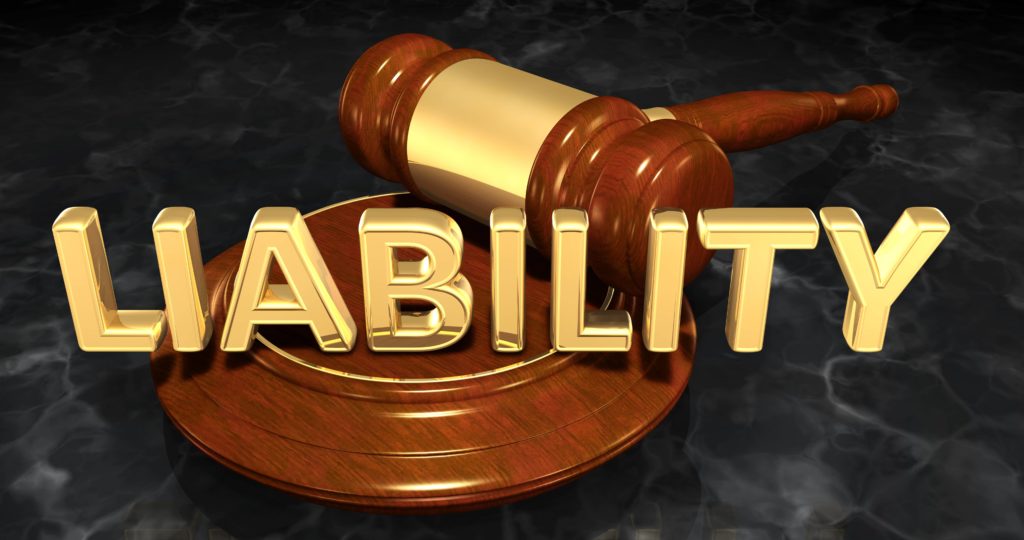In many ways, a homeowners association is comparable to a business, and the HOA board heads it. The board handles a wide range of duties such as overseeing repairs, maintaining common areas, and managing monetary funds. In addition to this, there are certain HOA legal responsibilities to keep in mind.
As a board member, you must use your position to preserve the welfare of your community. However, such power can open you up to legal liabilities when exercised incorrectly. For this reason, it’s important for board members to know the HOA legal responsibilities they must carry out.
HOA Legal Responsibilities Explained
Think of your community as a car. The board is the operator of that car. Their goal is to lead the development to its preferred destination safely. But, on the road to that objective, they must abide by traffic laws that govern all of those operating vehicles. These are the HOA legal responsibilities.
Because of their incorporated status, homeowners associations have fiduciary duties to fulfill, even though they are typically non-profit organizations consisting of unpaid volunteers. Comprehending your obligations and duties as an HOA board member will go a long way in keeping you out of a courtroom.
3 Types of HOA Fiduciary Duty
As a board member, there are certain fiduciary duties expected of you. The legal responsibilities of HOA members usually fall under three categories:
1. The Duty of Care
The duty of care states that HOA board members must make informed decisions when voting on community matters. This guideline sounds like common sense, but it is imperative to research the best solutions before voting or moving on issues that concern your members. In essence, you must handle every decision with care.
This duty also comes into play when penalizing someone for violating a covenant with the HOA. Before issuing the fine, you must comb through the CC&Rs (Covenants, Convictions & Restrictions) to see if a penalty is warranted. You must also use reasonable judgment and elude erratic or illogical actions. For example, you can’t stop someone from painting a part of their property simply because you don’t like the color.
2. The Duty of Loyalty
The duty of loyalty declares that when making choices, an HOA board member must act in the best interest of the association as a whole instead of working for their benefit.
that when making choices, an HOA board member must act in the best interest of the association as a whole instead of working for their benefit.
Also known as the duty of good faith, this obligation includes steering clear of any conflicts of interest that may arise. So, when deciding on an issue that would either directly or indirectly affect you, it’s best to stay out of the discussion.
A great example of a conflict of interest would be hiring a commercial power washing company whose owner is a relative or friend of yours. This duty also states that the board must protect the personal and private information of its members, including financial matters.
3. The Duty to Act Within the Scope of Authority
This responsibility requires the HOA board to fulfill the functions it is obligated to perform; however, it restricts members from making decisions that go beyond their authority. State laws and governing documents define the extent of an association’s power. As a board member, you must know what these laws and regulations are in order to fulfill your tasks effectively.
Take time to read through the state laws and your HOA’s governing documents. These include the bylaws, article of incorporation, and CC&Rs. After all, you can’t successfully perform your duties if you don’t know your limitations. For instance, if the laws or governing documents prohibit the HOA board from making new rules, then you have no authority to impose them. Going against this may put you and the board in legal trouble.
Other Legal Responsibilities of HOA Board Directors
In addition to the three fiduciary duties, there are other HOA legal responsibilities the board must execute. Let’s take a look at them here:
1. Budgeting, Assessments, and Accounting
 Part of the HOA board’s many responsibilities is budgeting, collection, and accounting. You must keep track of your association’s financials, using HOA accounting standards that have been set up.
Part of the HOA board’s many responsibilities is budgeting, collection, and accounting. You must keep track of your association’s financials, using HOA accounting standards that have been set up.
This includes accurate bookkeeping and generating reports. The board then analyzes the association’s financial standing based on these reports.
Furthermore, the board must consider the previous year’s expenses and potential future costs to create the new year’s budget. Using this projection, you must divide the amount equally across the members of the community. The board must then collect these assessments, recording each one diligently.
It is of utmost importance that no special treatment be given to any resident, even if they are struggling financially. While that may sound harsh, board members must exercise equal treatment across all homeowners. In some jurisdictions, it may even go a step beyond that. For example, in Texas, the board may begin foreclosure proceedings against a resident who has failed to pay his dues. This is in accordance with the Texas Residential Property Owners Protection Act.
2. Uniform Enforcement of Rules
The duties and responsibilities of HOA board members also cover uniform enforcement of rules. No resident must be exempt from following the stipulations written in the governing documents. Just because a violator is a friend of yours doesn’t mean you can let them talk their way out of a fine. When it comes to rules, put your personal feelings aside. The board must apply rules equally and without fail.
Rules exist to maintain order and protect the community. Of course, some rules can be vague, giving rise to misunderstandings. For this reason, board members must have a clear and unvarying consistent knowledge of the rules.
Protecting Yourself from Personal Liability

The HOA board isn’t invulnerable to lawsuits. In fact, many community members refuse to join the board at the risk of personal liability. Homeowners can sue the board for various reasons, including failing to fulfill HOA legal responsibilities. However, both state laws and governing documents can protect board members from personal liability.
Several states have laws in place that reduce a board member’s liability. For instance, in Colorado, these limitations can be written in the bylaws or articles of incorporation of a non-profit organization.
Moreover, governing documents usually consist of indemnification provisions that require the association to reimburse directors for expenditures related to their service on the board. This can include any expenses that come with defending a lawsuit. However, provisions such as these typically have exceptions. Board members who act in gross negligence (or willful misconduct) may be held personally liable.
Associations must also have proper insurance coverage for board members. General liability insurance won’t cut it. Your HOA must have Director’s & Officer’s (D&O) insurance in case of claims filed for violation of fiduciary responsibilities.
The Business Judgment Rule and Reasonableness
Sometimes, there are out-of-court settlements for the lawsuits. However, if a case does go to court, preparation is a must. Depending on the jurisdiction, there are two standards from which courts examine an HOA board’s actions.
First, there’s the business judgment rule (judicial deference). In states that abide by this doctrine, board members aren’t held liable provided their decisions were made with sound business judgment.
For example, in California, board directors are protected if they served “in good faith, in a manner such director believes to be in the best interests of the corporation and with such care, including reasonable inquiry, as an ordinarily prudent person in a like position would use under similar circumstances.”
On the other hand, some states use the reasonableness standard. Using this rule, courts look into whether a board’s actions were within the “legal powers granted the governing body by relevant statutory or condominium document provisions.” Furthermore, courts “determine whether they have an unfair or disproportionate impact on only certain unit owners.”
While the two frameworks seem similar, there’s a big difference when it comes to the burden of proof. In states where the business judgment rule applies, the homeowner must provide evidence against the board to support their claim. In states where the reasonableness rule applies, courts investigate whether the board’s decisions were “reasonable,” focusing on facts.
The HOA Board Can Face Legal Repercussions
Homeowners may take legal action against an HOA board should they neglect their duties and responsibilities. For instance, if the board discriminates against you when applying rules. An HOA board that fails to abide by the governing documents is also in danger of being sued. Other reasons can range from failing to repair or maintain common areas to misappropriation of funds.
Performing Your HOA Legal Responsibilities
These HOA legal responsibilities exist to protect the community and its well-being. As a board member, the best way to protect yourself from legal liability is to do your job well. It’s not enough to familiarize yourself with the association’s governing documents and state laws. You must make sure your actions are compliant. As long as you act with care, within the extent of your authority, and in the best interest of the association, you have nothing to worry about.
Most homeowners associations seek legal assistance from an HOA management company to cover their bases. If you require help, reach out to us at (855) 238-8488 or email us at help@emspm.com.
RELATED ARTICLES:







